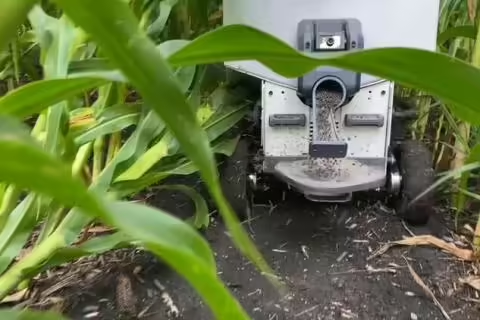
Urbana, Ill. — The U.S. Department of Agriculture recently announced that it is funding a new project led by the University of Illinois Urbana-Champaign that will address major obstacles to adoption of cover crops in the United States.
Titled “iCOVER: Innovated Cover-crop Opportunity, Verification, and Economy stimulating technology for underserved farmers using Robotics,” this $4,999,999, four-year project is funded through the USDA’s Partnerships for Climate-Smart Commodities program and was facilitated through the Institute for Sustainability, Energy, and Environment at Illinois. The project will scale up robotic cover crop planting and verification of soil carbon through innovative radiological robotic sensing technologies, creating markets for climate-smart products for minority underserved farmers growing specialty crops and animal products.
“Cover cropping is hugely beneficial to farmers and the environment by ensuring more carbon in the soil year-round, keeping nutrients where they belong and out of the atmosphere,” said Primary Investigator Girish Chowdhary, Associate Professor of Agricultural & Biological Engineering and Computer Science. “But there are three major bottlenecks in cover-crop adoption: high cost and hassle of planting; slow and expensive soil carbon measurements; and low return on investment for farmers.
“iCOVER will scale up autonomous farming and sensing technologies to help reduce the cost and labor burden of cover crop planting, to enable accurate, rapid, low-cost soil measurements, and to explore the market linkages for climate-smart benefits to a diversity of farmers.”
Read more from the Institute for Sustainability, Energy, and Environment
Photo: A robot plants cover crops during the summer growing season for corn. Credit: University of Illinois Urbana-Champaign